What next for Scotland's housing market?
- Published
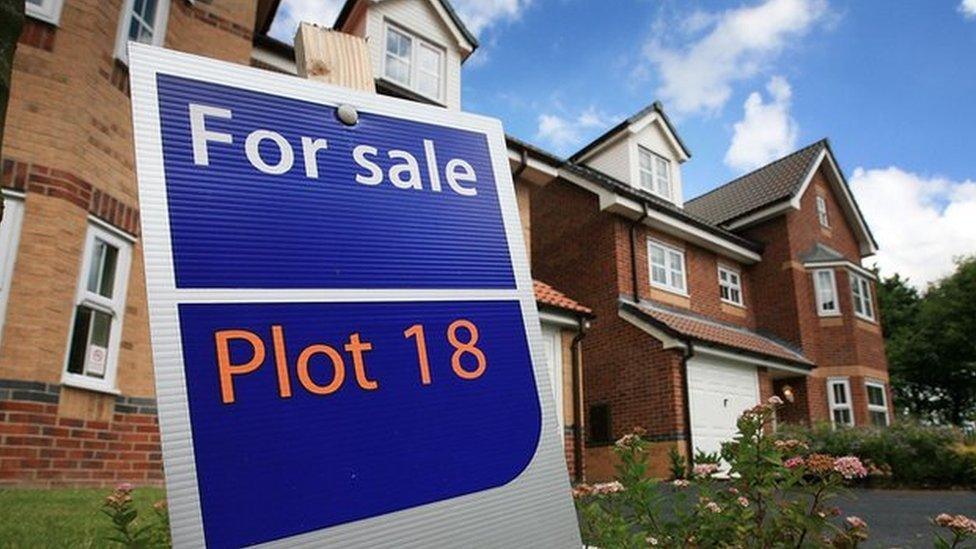
The cost of buying a home has continued to rise at almost the same pace as other prices, up 9.7% in the past year, but that rate has been falling.
A shortage of homes coming on to the market means many bidders will push up the price, and they are doing so most for detached homes.
The number of transactions is down on last year and with rising mortgage costs and falling consumer confidence, house price inflation is set to fall further and could go negative.
As soaring price inflation, the prospect of recession and of a prolonged European war have closed in on the economy, the housing market appears to have bounced along merrily, as if oblivious.
It's not as if they're linked to the price of oil, gas or food, which have driven inflation to 10.1% in the year to August.
The latest house price index, published on Wednesday, shows the average price paid for a Scottish home in August was 9.7% up on the same month last year.
That's down from the 11% rise in the year to July, and down from the 15.1% published a year ago.
The English market has seen more volatility in price inflation, partly through the distorting effect of transaction tax holidays - used by the Treasury to stimulate the market as the country came out of recession.
Prices in the year to August in England were up 14.3% - down from July's inflation rate of 16.8% - with the average price reaching £315,000. That figure is pulled up by London and the south-east, which have seen more subdued increases in recent years.
Price inflation across the UK, with Wales also seeing some lively numbers, means that the average home has gained £36,000 in value over the past year - ahead of average pre-tax full-time earnings.
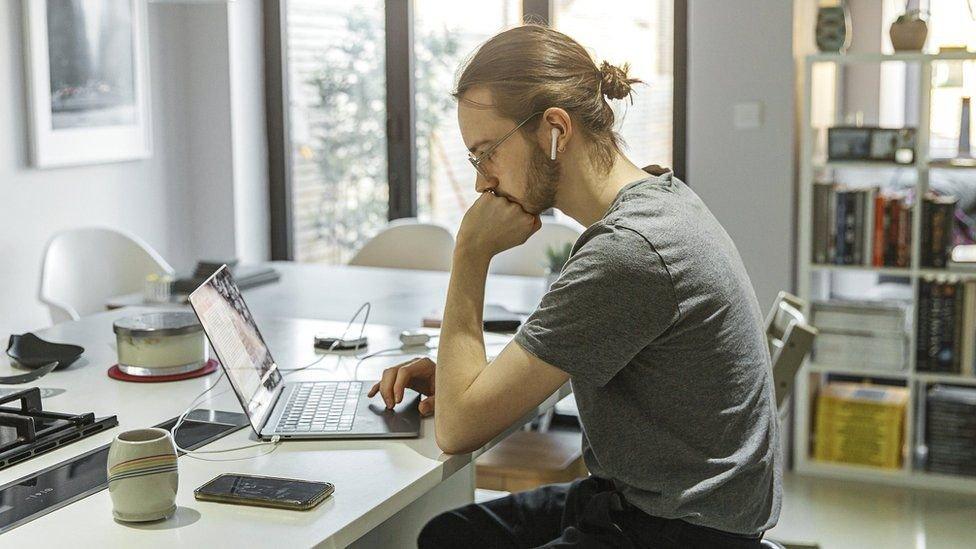
Much of this has to do with the pandemic. The enforced shutdown of the market for parts of 2020 was followed by a burst of pent-up demand, driven by people who had realised during lockdown that they could do with more space.
Many saved quite a lot during the pandemic, which they could put into a house purchase.
Many also found they could live and work further from the office. So the price of a des res detached home with a bit of space in the country, especially near the coast, has risen fastest of all.
The latest figures from Registers of Scotland show the price of a detached home is up by 13% to £349,000 on average, while flats were up 6.7% to £134,000.
Aberdeen registered barely any increase, while other bigger cities were close to the national average. The council areas with the biggest increases were Argyll, Highland and the islands.
East Lothian and the Borders have been hot spots for rising prices recently, but both saw more modest price increases in these latest figures.
There's a health warning with these figures, though, as they can be skewed by small numbers of transactions, and August can be a quiet month.
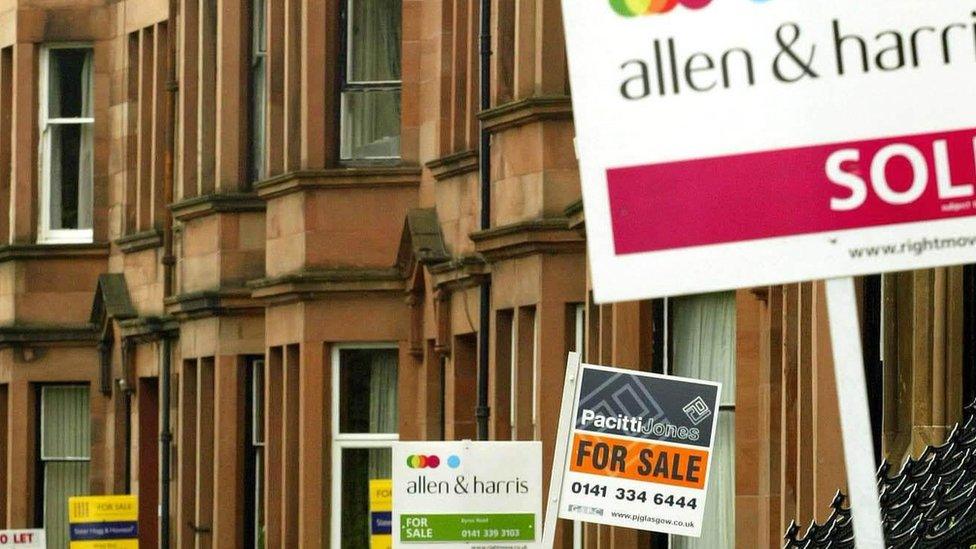
The big driver of home price inflation in recent years has been the mismatch of supply and demand. Estate agents and surveyors note that there aren't enough homes coming on to the market while demand has remained higher.
When they are put up for sale, the blind bidding system usually used in Scotland is competitive.
To illustrate the point, I'll declare a personal interest: I recently sold my terraced house in Glasgow. There were 13 bidders, and it went for more than 30% above the home report valuation. That, incidentally, puzzles me as to the point or the meaning of a home report valuation.
Last year saw the highest number of transactions since 2007, partly to catch up on the lower number in the first year of the pandemic. Registers of Scotland tells us that transaction numbers were down by more than a fifth in the year to June.
And according to a specialist in the economics of the housing market, John Boyle at Rettie estate agents, that is at least as important a number to watch if we are to understand the market.
His preferred indicator of market health is the number of sales multiplied by the average price, and since the financial crash of 2008, that has been much lower than it was.
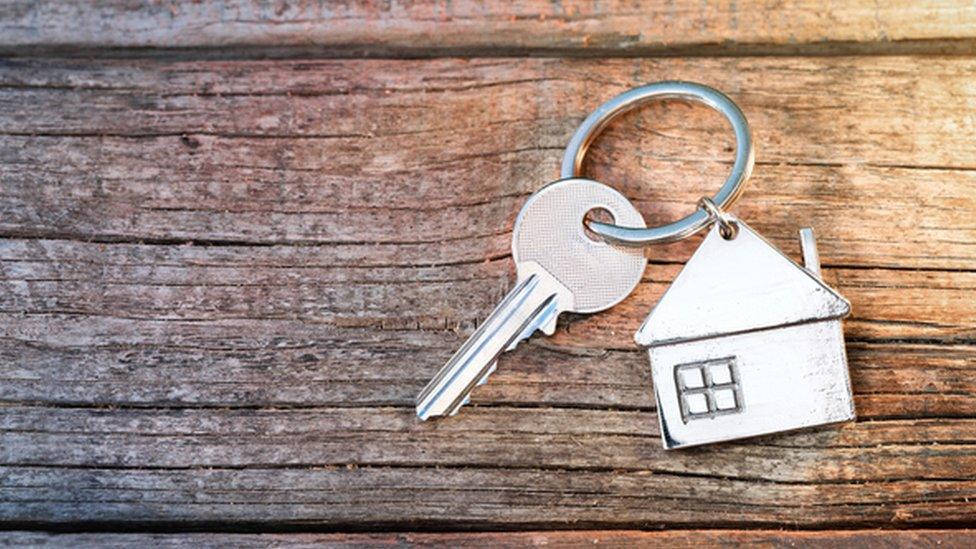
Looking ahead, Mr Boyle is one of the market watchers who expects to see the broader economy closing in on house price inflation and dampening it, though not necessarily by driving prices down.
That only happens where people are forced to sell - for instance due to divorce or a need to move home for work. What we've seen in recent years is that those who have to move, but cannot sell at the price they want, will often rent out and become tenants elsewhere.
And there's repossession due to mortgage default, which was a feature of past recessions. That is less likely now because affordability checks ahead of agreeing to lend have been much more stringent since 2008. Banks, or at least their regulator, are wary of the destabilising effect it can have on the economy.
If homes don't have to be sold, that squeezes supply even further, and holds up prices.
Mr Boyle says the mid-to-upper level market has continued to fare quite well, depending on cash buyers and those on secure, higher salaries.
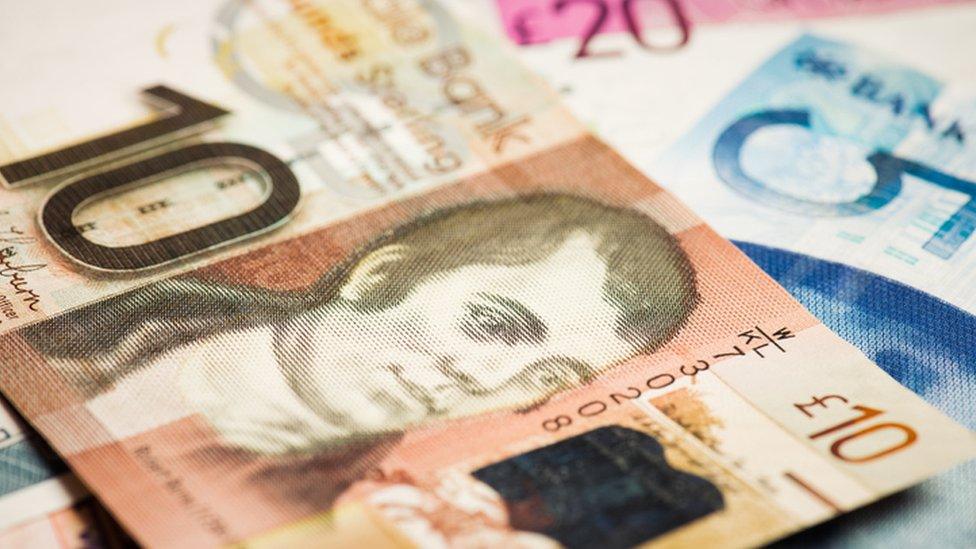
Cash buyers have grown as a share of the market, to around a third. They have an advantage in bidding contests over those who have yet to secure a mortgage or have other houses to sell first.
The lower-to-middle market is more exposed and dependent on mortgages. With monthly payments at exceptionally low levels since 2009, home prices adjusted upwards to affordability based on those low mortgage costs.
But as they rise - which they were bound to do eventually, but with the recent budget bùrach in Downing Street turbocharging them - they are making it more difficult to make that second or third step up.
The Registers of Scotland figures are accurate about transactions that have to be registered with that office, but they are backward looking. Deals closed in August were typically struck in spring, before it became clear that the economy was heading downhill.
More up-to-date assessments of the market come from Halifax, part of the same group as Bank of Scotland. It says UK prices in the year to August were up 9.9% with inflation on a falling trend. Scotland's prices rose, but by 8.5%, falling from 9.3% inflation over the year.
What is a buyer to do?
Rightmove, which has a strong grip on the property advertising market, reported that Scotland has seen 6.6% growth in prices in the past year, and it is taking an average 24 days to secure a sale. The UK increase for Rightmove is 7.8% and falling.
It notes the recent political and interest rate turmoil has hit the first-time buyer market. Its report this week showed a drop in the number of such people engaged with buying, while those who have a mortgage offer are rushing to complete the purchase before interest rates rise further.
The monthly market review by RICS, the surveyors organisation, is the best measure of what lies ahead. It reported buyer enquiries in Scotland have recently fallen for third consecutive month.
While limited supply is still supporting a modest price rise, this looks set to end as the pace of house price inflation slows.
Looking to the remaining weeks of this year, price and sales expectations are now slightly negative. That does not tell you how much prices or sales might fall - only that the number of upbeat surveyors is smaller than the downbeat ones.
If this is a turning point in the market, what is a potential buyer to do? Wait to see if prices fall, or jump into the market in case mortgage costs rise further?
There's no simple answer. It depends on circumstances, of where you are, how long you can stay there, where you want to be, and how you intend to finance it.
